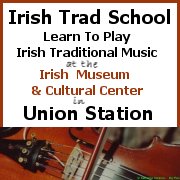Ireland & USA: Little Differences #8
Temperatures
I’m not referring to Fahrenheit versus Centigrade or Celsius - or as AccuWeather bizarrely calls those options, ‘English’ versus ‘Metric’, presumably on the basis that if America uses it, then it must be ‘English’ however German Mr Fahrenheit may have been.
No, I’m talking about talking about temperatures. If ya know what I mean?
Here in America, everybody knows exactly what the temperature is outside their home, their work, their car, and their dog. And of course inside. In Ireland today nobody, bar a few pub quiz freaks, knows what the temperature is. Some might have a general idea - it’s bleedin’ freezin’ - but even they don’t really care.
This November day in Ireland the weather forecast is for a High of 8-12C. That’s a five degree centigrade spread for a high, the equivalent of an eight-degree spread in Fahrenheit (46.5-53.6F) just for the estimation of the highest temperature of the day.
The same brave spread exists for the Low of 2-6C (35.6-42.8F). That’s how vague and non-commital Irish people are. It’s a forecast you, me, or an infirm cat could make. And it’s because we don’t really care. Seven or eight degrees (Fahrenheit) difference should not affect your lifestyle.
Here in Kansas City, Missouri, however, the forecast high this unseasonably warm November day, is 72 (22C) and the low is 43 (6C). On the money. No spread. Weather services chastize themselves for being out on these, especially by as much as three degrees Fahrenheit - which equates to 1 and two third degrees Centigrade. Because the people demand it.
In America people have their favourite temperature, for central heating, for air-conditioning, and even for reality - which I hear is outside. This is not a preference for whatever is comfortable; it is exact and uncompromising.
It goes beyond the literalism for which the US is reknowned; it’s a lifestyle. I just have to have it at 68 degrees; 67 is too cold. -Oh no, I just couldn’t bear it at 68, I keep it at 71 in my house and it never moves.
Irish people on the other hand talk in ranges; the weather, much like that woman you were talking with last night, is ‘warm’, ‘cold’, ‘bitter’, or unremarkable. In the middle of America, however, it is 77 degrees (25C) or it is 43 degrees (6C) or it is 34 degrees (1C). And that woman is 36 years old.
Even if numbers are used by Irish people they are still talking in the general sense. For example if I tell somebody in KC that it is 70 degrees outside, they will correct me and say it is 71, unaware I didn’t mean exactly 70.
Irish people talk numbers and mean them only for the extremes of summer or winter, when they might be newsworthy. Hey, did he say it’s going to be -6 (21F) tomorrow ? And we all go wow, even though we know it’s only going to be -6 in Offaly and at a time of the night when we are fast asleep in a beery haze, in a different county.
This is the great loss of nations turning away from open fires for heating. With a fire you ignore numbers and simply position yourself whatever distance from the fire that keeps you warm enough - but not too warm. And because the temperature isn’t evenly controlled throughout the room, tons of people can co-exist in there.
And if you find yourself consistently beside the same person, close enough to put your arms around each other, you should consider marriage. Unless you are siblings.
See Also:
• Irish Fests
• Car Bombs
• 10 Things I Never Heard Before Moving to America

 Eolaí gan Fhéile:
Eolaí gan Fhéile:











As discussed, Midwest English, is German. There’s really no nice way around it. The dogmatic insistence on pedantic facts is a reflection of the mindset. The minds shaped the language.
The subtlety, colour, variety of the most expressive language in the world, (yes, only language to house a thesaurus) has been paired down to a shapeless tool of exactitude. To make a joke, you just say it loudly - it requires no real clever play on words or intonation.
English became a basic tool for being understood at the simplest level. This is why Midwesterners talk to what they consider to be foreigners (or non-”English” speakers,) in a slow and loud form of verbal assault, the type of which is usually reserved for the elderly or hearing impaired.
If you’d like an example, compare the current reading grade of the Kansas City star to what it was say 25 years ago. I do see spot run.
The need to be right in all things, not only transformed the language, but also ensured that they are never wrong… or at least ensured they will never admit it.
Did youse play later than usual last night?